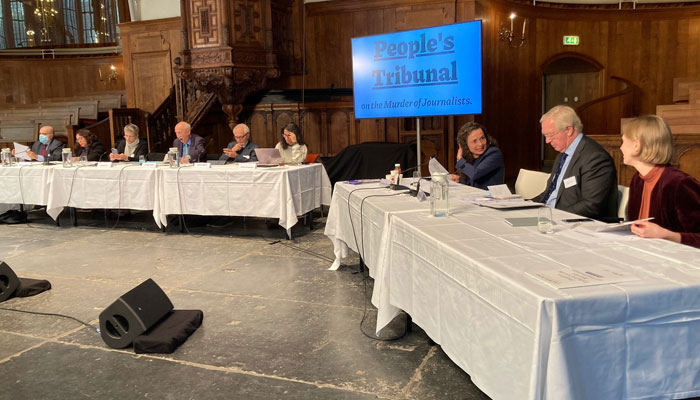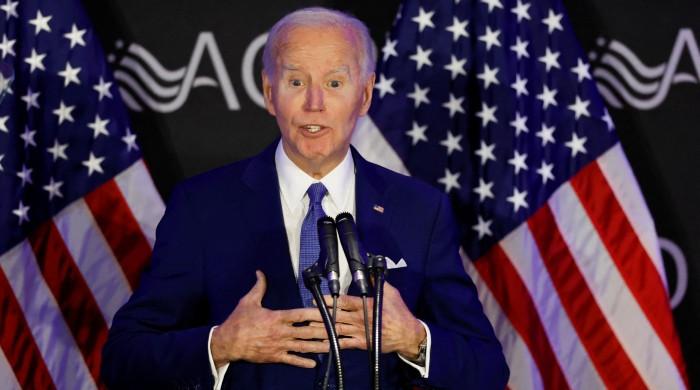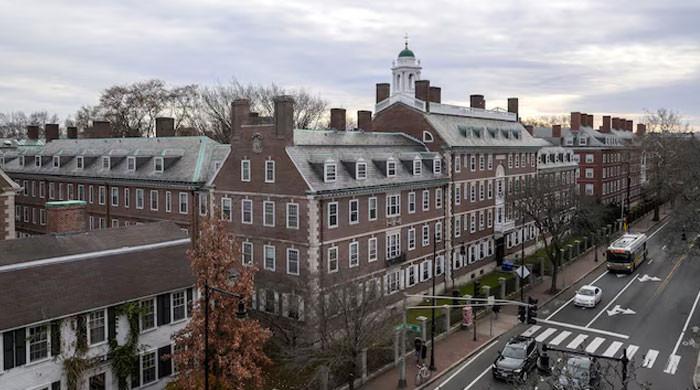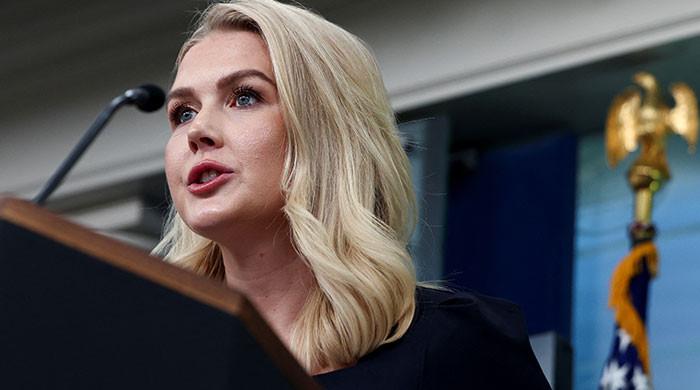People’s Tribunal holds first hearing for journalists murdered with impunity
The purpose of the People's Tribunal is to pressurise governments to punish culprits involved in crimes against journalists
November 04, 2021

- The recently launched People's Tribunal started hearings against the murder of journalists who are killed with impunity.
- The tribunal aims to punish the culprits responsible for the crimes committed against journalists.
- Over 1400 journalists have been killed worldwide since 1992.
THE HAGUE: The People's Tribunal has begun hearings in The Hague to bring to light the murder of journalists and other crimes against them and to punish the perpetrators responsible for the crimes committed against them.
Violence against journalists is on the rise worldwide. At least 1400 journalists have been killed ever since 1992. In eight out of ten cases where a journalist is murdered, the killers go free.
Spearheaded by the Free Press Unlimited (FPU), the Committee to Protect Journalists (CPJ), and Reporters Without Borders (RSF), the People’s Tribunal on the murder of journalists officially commenced on Tuesday, marking the International Day to End Impunity for Crimes Against Journalists.
Testimony was given by the victims at the preliminary hearing of the tribunal. Early witnesses included people from Russia, Colombia, Turkey, the Philippines and West Africa.
On this occasion, Nobel Prize-winning journalist Maria Resa addressed the opening ceremony of the tribunal and highlighted the importance of freedom of the press.
The tribunal has extended a special invitation to Hamid Mir, a well-known Pakistani journalist. Several judges, lawyers, intellectuals, and leading human rights organizations Amnesty International and Reporter Without Borders and some European intellectuals and legal experts attended the tribunal.
Speaking on the occasion, the legal adviser of the People's Tribunal said that it is not legal but it is an ethical tribunal. The purpose of all these exercises is to increase the pressure on governments around the world to address the danger posed to working journalists.
Free Press Unlimited Annual Awards 2021
The Amsterdam-based organisation Free Press Unlimited organised an annual award ceremony in The Hague. The investigative journalist of Bangladesh, Rozina Islam won the Free Press award in the category of “The Most Resilient Journalist of the year" and Multimedia Journalist of Indian held Kashmir Burhan Bhat received the Hans Verpoelg Award 2021 in the category of "the Newcomer of the year".
The jury looked impressed with the creativity and other professional skills of Burhan.
Rozina Islam exposed the widespread corruption in the government of Bangladesh. The Hasina Wajid administration arrested her and snatched her passport so that she could not travel abroad.
Multimedia journalist Burhan Bhat's stories focus on public aspirations for justice.
Talking to Geo after receiving the award, Bhat described the situation for journalism in Occupied Kashmir as devastating. He said doing journalism is difficult everywhere but India is a special case where journalists face threats all the time with impunity.
The fact that the South Asian journalists received both prestigious awards indicates that there are courageous journalists in the region who show an objective and true picture of the situation to the people despite all threats. At the same time, it shows the deteriorating human rights situation and exposes the faces of populist fascist governments in South Asia, India, Bangladesh and Pakistan's hybrid democracy to the international community.











